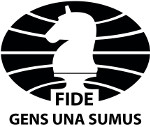FIDE Qualification FAQ Introductions
Each year the FIDE Qualification Commission contacts Federation Rating Officers with updates and clarifications about the operation of the FIDE Rating System (FRS). Although primarily directed at Ratins Officers, QC also think that the contents of the letter would be of interest to regular chess players as well. Below is the letter sent to Federations for 2025, containing information about the operation of the rating system, as well as some case studies that might be of wider interest.
Shaun Press
Secretary, FIDE QC
Tournament Approvals
Dear Rating Officer, once again I would like to thank you for the work you have carried out in the past year in helping FIDE provide a reliable and timely rating service to your Federation members. The FIDE Qualification Commission (QC) recognise that this work is often voluntary, and we appreciate the sacrifice you have made in working with us. Without your assistance, players world wide would not be able to benefit from the important service that the FIDE Ratings System (FRS) provides. During the past year QC has received a number of questions regarding the operation of the rating system, and I would like to share some of the answers with you, to help make your job easier.
1) I registered an event and initially it was approved, but now it is unapproved. What happened?
Most FIDE events are automatically approved. This includes Round Robins (RR), Swiss, and Team events. However, if the details of the event have been changed in any way (eg start/end date, number of rounds etc) then the event becomes unapproved. As we wish to ensure that players have as much correct information before entering an event, registering the event, and then changing the format, dates, rounds etc may prevent players from making an informed decision. As a result we require such changes be approved by QC to ensure fairness and transparency.
2) What events are not automatically approved?
Manual approval is required for a number of reasons. There are some formats which QC has decided need to be checked. These include matches, Scheveningen and Schiller formats, Hybrid events or any events that fall under the ‘Other’ category of formats on the FRS. Events that are registered less than 3 days before the scheduled starting date (or after the starting date) also need to be manually approved.
3) How long does it take for approval to be granted?
QC usually begin to approve events in the 2 nd half of each month. Checks will be made every few days, although in the final week of the month, this will be every day. As part of the approval process QC checks the uploaded TRF file, so events that do not provide a TRF file will not be approved (NB You can submit tournament results prior to tournament approval)
4) I followed all the steps, but the event was still not approved. Why?
There may be a few reasons for this. FIDE Regulations require events to be submitted in a timely manner. Events scheduled to finish in the last 3 days of the month may be held over to the next month. Events that are more than 3 months old (in practice 100 days) will not be approved. Tournament files submitted in the last 48 hours of the month may result in the event being rated at the end of the next month. (NB All times are based on the time at the FIDE Ratings Office, and so may be affected by your own time zone. Please allow an extra day to be certain of acceptance) There are also events that QC regards as falling short of the necessary requirements for inclusion on the FIDE Rating System. See the next section for examples
5) An event is showing up as unapproved and I don’t know why. What should I do?
Contact the QC Secretary (Shaun Press) for an explanation. It could simply be an administrative issue or something more serious. If the tournament has been rejected due to tournament organisation issues, then the next steps to take will be explained to you. While 99% of FIDE Rated events are processed without difficulty, QC is still required to deal with the 1% of events that fail to meet the FIDE standards. Obvious cases involve result manipulation, sub standard tournament conditions, ‘fake’ tournaments, and tournaments designed to subvert the accuracy of the FIDE Rating System. Ideally tournaments of this nature should be caught at the national level, prior to their submission to FIDE. Below are a number of real life cases to help you identify such tournaments and guide you in your own decision making process.
Case Studies
A) In 2023 and 2024 QC received tournaments using the following format: Team A consisted of unrated players while Team B consisted rated players.
In the first case it was teams of 9 players, with Team A being quite young junior players, while team B consisted of highly rated players. They played a Scheveningen format event where all members of Team A played all members of Team B. Members of Team A did quite well and received high starting ratings (placing some players as the highest rated players for their age in the world). QC decided not to rate the event and requested the host federation explain the organisation of the event. The host federation initially did not reply to our questions, and the event remained unrated. Later the host federation revealed that the players on Team B were specifically chosen as they were inactive, and the hope was that they would perform poorly. While QC was correct in assuming that this event was organised solely to generate high starting ratings for players, the Federation Ratings Officer should have refused to submit the tournament.
In the second case, a local organiser ran a series of events with 5 players on each team (5 rated v 5 unrated). QC had declared in early 2024 that such events Scheveningen’s with unrated players) would not be accepted for rating. Nonetheless the event was submitted by the Federation, and the organiser complained when the tournament was rejected. Again, this event should not have been submitted.
The issue with such events is twofold. Firstly, they can be used to generate ‘fake’ ratings for players. But even if this is not the purpose, the fact that only one group of players is playing for rating (the unrated players), encourages the other players to play below their usual level of ability. Indeed, such players can then play against the newly rated opponents a second time, and gain rating points as an additional reward.
So what should happen instead? QC would accept such events if they were played as a swiss event. 5 rated and 5 unrated players in a 5 round swiss would allow the unrated players to move towards gaining a rating, and assuming the event was correctly supervised and all players played to best of their ability, would be rated by QC. Of course with the small field and limited number of rounds, more than 1 event of this type may be necessary. (NB In general, players wishing to gain FIDE ratings should play against a wide variety of opponents, which a larger swiss event usually provides)
If you have any doubts about the format of the event, please contact QC in advance. It may be the case that QC will decide the event is legitimate, but this should be done prior to the event being held, otherwise the event may not be approved for rating.
B) A series of Scheveningen events were organised in 2024 where teams of young players (Under 20 years) played against teams of elderly players (Over 60 years).
These were DRR events, with the ‘Seniors’ team significantly higher rated than the Junior team. Nonetheless the members of the junior teams usually gained rating points at the expense of the Senior team. QC declined to rate these events as we felt that the purpose of these events was to simply allow junior players to gain rating points against players who were declining in strength and had no motivation to play their best. Connected with this is the imbalance between the rating gains (due to K=40) and the rating losses (K=10 or 20). The organisers appealed this decision to FIDE Council (as part of the established appeal process), but ultimately lost the case.
Again, the organisers have alternative formats when organising events. An open swiss involving this mix of players would be acceptable, or even a round robin with a mix of adult and junior players. Again the principle that all players should be playing for the same rewards applies here.
C) A player had earned a direct title in a previous event, but had not achieved the necessary rating to be awarded the title.
QC then received a complaint that subsequent tournament results (and participation) had been falsified to allow the player to reach the required rating. Investigating the case QC discovered some result irregularities (forfeits being recorded as wins), as well as the player being allowed to skip rounds to only play lower rated opponents. QC then declined to approve the title due to these irregularities. The Federation was informed that the player could apply for the title on the condition that they reach the rating limit, but that some events must be played outside the Federation. Subsequently the players rating returned to the level achieved prior to the tournaments in question.
In this case Ratings Officers should try and be aware of situations such as this. As you are better placed than QC members to follow internal events, such incidents are likely to draw your attention before the complaints reach FIDE. QC may also withhold approval of the title until the player concerned has played a mix of events (RR+Swiss or teams) in reaching the rating threshold.
D) FIDE QC is often contacted by organisers who have difficulty in having their events approved by their national federation.
The issue is almost always an internal Federation matter between the organiser and the Federation. FIDE policy is not to intervene in internal federation matters, but there are some guidelines you still need to be aware of. FIDE regard the rating of chess tournaments as desirable, and encourage all federations to rate as many events as possible. As long as the event fulfils the FIDE requirements for a rated event, and the results are submitted in a timely manner, then your federation should try and rate the event.
Federations are allowed to impose their own conditions on organisers, but these conditions should not be onerous, or only applied to a subset of organisers. Federations are entitled to charge a fee for the rating of events, to cover FIDE charges and Federation costs, but these fees should be paid to the official federation account. Requesting the payment of fees to be paid directly to the Rating Officer or another federation official is not permitted, and may result in further action by FIDE. Refusing to rate an event without an official decision by the federation is also problematic, and again should not be done without a valid reason.
E) QC also receives complaints from players concerning the conduct or conditions of an event.
In all cases our first action is to contact the organiser and the national federation. In some cases the complaint concerns the tournament conditions (eg poor venue, noise or rain affecting the event) while in other cases it is the tournament itself that is questioned (eg not playing the advertised number of rounds, decisions by the arbiter). Normally these issues are resolved at the local level, with the federation (or even the event organiser) removing the event from the FIDE Rating System. Again be aware of the minimum standards expected by FIDE for rated events, and assist organisers in keeping to those standards.
It is important that as a Federation ratings Officer you are aware of the rules and regulations for the submission of events. As the point of contact between the FRS and your local federation, the successful operation of the FRS does depend on you. If you are unsure of an event, or require guidance on rating matters, please contact QC Secretary Shaun Press (shaunpress@gmail.com) with any questions you might have.


